Lisbon some tips for those visiting the city
Lisbon has awakened again and is now one of the coolest holiday destinations in Europe . The words "new" and "cool" have not been associated with the Portuguese capital since the 16th century, when it ruled the worlds first global empire, extending from Brazil to India. Vasco da Gamas expedition to the East brought cultures and a touch of the exotic that Europe had never seen before - spices (cinnamon, pepper, ginger), food (potatoes, pineapple, tea) and animals such as elephant and rhino paraded through. edge of town. When the glory days of commerce and discovery ended, Lisbon fell victim to one of the most destructive earthquakes ever recorded, and has remained dormant ever since.
The kiss that woke up the "princess of the Tagus" came during Expo 98, the last world fair of the twentieth century. The Expo venue has become a new neighborhood with futuristic architecture, riverside warehouses have been transformed into clubs and restaurants, narrow cobbled streets overrun with caipirinha - young crowds enjoying a typically warm night, new boutique hotels and contemporary design hostels. They were opened in old renovated buildings, and a strengthened art scene brought a renewed sense of confidence. Culture lovers have also welcomed a new collection of world-class modern art (the Berardo Museum), a revived Design and Fashion Museum and the iconic MAAT (Museum of Art, Architecture and Technology). and an energized art scene brought a renewed sense of confidence. Culture lovers have also welcomed a new collection of world-class modern art (the Berardo Museum), a revived Design and Fashion Museum and the iconic MAAT (Museum of Art, Architecture and Technology). and an energized art scene brought a renewed sense of confidence. Culture lovers have also welcomed a new collection of world-class modern art (the Berardo Museum), a revived Design and Fashion Museum and the iconic MAAT (Museum of Art, Architecture and Technology).
But what hasnt changed is the breathtaking views that make Lisbon the most scenic capital in Europe . Add your famous brand mosaic floors, pastel-colored buildings or crumbling tiles, iconic turn-of-the-century streetcars, melancholy fado music and also one of the worlds most soulful cities. In fact, Lisbons unpolished appearance, in fact, provides a seductive atmosphere of its own and keeps it from being just another bland old town.
Nearby Atlantic beaches and fairytale palaces are other attractions, though visitors find many reasons to simply embark on their own voyage of discovery in the city.
Decide what you really want to see in Lisbon based on your interests - be it art, architecture, street life or just taking some pictures of the main sights. We highlight the best attractions in different categories and, to help you plan, link you to your location on Google Maps or your official website or tour options.
Pose for your camera by the storybook Torre de Belém and the neighboring Jeronimos Monastery , two World Heritage monuments reminiscent of the great Age of Discovery. Cross the road through an underpass and do the same with the iconic Monument to the Discoveries city , immortalizing the founders of the global village in stone.
A collector of Portuguese millionaires who turned into art needed a large space to put all their Warhols, Picassos, Dalis and Lichtensteins. It was handed to him inside the modern Belém Cultural Center (CCB) and a museum named after him was created there in 2007. The Berardo Museum of Modern and Contemporary Art now has one of the most important postwar art collections of the Europe, and a visit may be followed by a concert or performance at the CCB.
And on the citys main pedestrian street, the Design and Fashion Museum features one of the worlds most acclaimed design and fashion collections by leading international designers (Charles & Ray Eames, Russell Wright and Le Corbusier, along with Dior, Vivienne Westwood, Yves Saint Laurent and John Galliano, among many others)
Before Berardo, there was Gulbenkian, an oil tycoon who loved sunny Portugal and moved there with his art collection in the early twentieth century. His exceptional treasures (including Egyptian and Greek art, Laliques fantastic jewels and paintings by Rembrandt, Van Dyck, Rubens and Renoir) were inherited by the state after his death, giving rise to a foundation and museum in his honor. The Gulbenkian Museum now holds one of the best private art collections in the world and includes a separate building dedicated to modern art. Between the two buildings are pleasant gardens full of sculptures.
The old art museumIt also features a splendid collection, including works by Raphael, Dürer and Hieronymus Boschs "Temptation of Saint Anthony". Other highlights are the "Adoration of St. Vincent" (featuring Infante D. Henrique and other historical figures), fascinating Japanese paintings depicting the Portuguese arriving in Japan and the first Japanese encounter with Europeans, and precious gems brought by Vasco da Gama. Take a break in the charming garden and cafeteria
In the late 1990s, American architect Peter Chermeyeff designed a towering building that opened in time for the Lisbon World Fair, Expo98. It is the Oceanarium , one of the largest aquariums in the world with high tech displays. Inside the state-of-the-art tank, 25,000 creatures, from sharks to seahorses, swim in harmony. It incorporates the worlds oceanic habitats in one place, allowing visitors to dive deep into the sea and discover the underwater world.
Once outside, walk towards the river and climb a cable car to see the Vasco da Gama Bridge. , which is the largest in Europe. Also check out Oriente Stationnearby, an impressive Santiago Calatrava creation, as well as the Portuguese Pavilion by Siza Vieira for its impressive corrugated concrete roof
Some of its walls have been overlooking the city for nearly a millennium, and still remain the crown of the city. From the peaceful walls of São Jorge Castle , visitors have stunning panoramic views of the city, while one of the rooms that has survived battles and earthquakes over the centuries displays archaeological finds of the site. Inside one of the towers is also a periscope projecting views of the entire city, while the rooftop gardens are a great place to sit and admire the sunset amid roaming peacocks.
Laundry hung on wrought iron balconies against graffiti-covered walls. Behind common doors and windows are alternative clothing stores and cosmopolitan bars and restaurants. Sleep during the day while old ladies gossip from their windows; It wakes up at night when different young tribes invade its cobblestone streets ... This is the life of Bairro Alto , Lisbons bohemian neighborhood and decadent shabby-chic restaurants-bars and nightlife Mecca. Shop at your trendy stores in the late afternoon, just before a typically late dinner, and stay for the biggest weekend traffic jam in Europe.
If you prefer to go to the beach, take the train from Lisbons Cais do Sodré central station, and in about 30 minutes you can be at Estoril. Tamariz Beach, overlooking the castle residence belonging to the royal family of Monaco. Facing the beach is Europes largest casino, which inspired Ian Fleming to write his first James Bond novel. During World War II this was the place for the European nobility (and spies) to escape. They also turned Cascais into a small, elegant beach town that is connected to Estoril by a seaside boardwalk. Cascais is quite beautiful, especially its Guincho Beach, which became famous as a venue for the World Surfing Championship.
Check to see if international luxury brands have special offers in their Lisbon stores on Avenida da Liberdade, and look for upscale independent stores on Dom Pedro V Street in Príncipe Real Neighborhood. And dont forget the charming old shops of Chiado and Baixa
Dinner time in Lisbon is always after 20:00 and often after 9 or 22 at weekends. Eating out is very cheap when compared to other Western European capitals, and a wide range of restaurants is concentrated in Bairro Alto. Neighborhood. Tourist options with local and international cuisine are found on the pedestrian street of Portas de Santo Antão and the Praça do Comércio downtown and the Docas de Santo Amaro marina with outdoor seating and wonderful views.
But what hasnt changed is the breathtaking views that make Lisbon the most scenic capital in Europe . Add your famous brand mosaic floors, pastel-colored buildings or crumbling tiles, iconic turn-of-the-century streetcars, melancholy fado music and also one of the worlds most soulful cities. In fact, Lisbons unpolished appearance, in fact, provides a seductive atmosphere of its own and keeps it from being just another bland old town.
Nearby Atlantic beaches and fairytale palaces are other attractions, though visitors find many reasons to simply embark on their own voyage of discovery in the city.
What to see and do in Lisbon
Decide what you really want to see in Lisbon based on your interests - be it art, architecture, street life or just taking some pictures of the main sights. We highlight the best attractions in different categories and, to help you plan, link you to your location on Google Maps or your official website or tour options.
INSTAGRAMS BRANDS, ICONS AND POINTS
MODERN AND CONTEMPORARY ART
And on the citys main pedestrian street, the Design and Fashion Museum features one of the worlds most acclaimed design and fashion collections by leading international designers (Charles & Ray Eames, Russell Wright and Le Corbusier, along with Dior, Vivienne Westwood, Yves Saint Laurent and John Galliano, among many others)
CLASSIC ART AND BEST MUSEUMS
Before Berardo, there was Gulbenkian, an oil tycoon who loved sunny Portugal and moved there with his art collection in the early twentieth century. His exceptional treasures (including Egyptian and Greek art, Laliques fantastic jewels and paintings by Rembrandt, Van Dyck, Rubens and Renoir) were inherited by the state after his death, giving rise to a foundation and museum in his honor. The Gulbenkian Museum now holds one of the best private art collections in the world and includes a separate building dedicated to modern art. Between the two buildings are pleasant gardens full of sculptures.
The old art museumIt also features a splendid collection, including works by Raphael, Dürer and Hieronymus Boschs "Temptation of Saint Anthony". Other highlights are the "Adoration of St. Vincent" (featuring Infante D. Henrique and other historical figures), fascinating Japanese paintings depicting the Portuguese arriving in Japan and the first Japanese encounter with Europeans, and precious gems brought by Vasco da Gama. Take a break in the charming garden and cafeteria
BRAND ARCHITECTURE AND MAIN MONUMENTS
In the late 1990s, American architect Peter Chermeyeff designed a towering building that opened in time for the Lisbon World Fair, Expo98. It is the Oceanarium , one of the largest aquariums in the world with high tech displays. Inside the state-of-the-art tank, 25,000 creatures, from sharks to seahorses, swim in harmony. It incorporates the worlds oceanic habitats in one place, allowing visitors to dive deep into the sea and discover the underwater world.
Once outside, walk towards the river and climb a cable car to see the Vasco da Gama Bridge. , which is the largest in Europe. Also check out Oriente Stationnearby, an impressive Santiago Calatrava creation, as well as the Portuguese Pavilion by Siza Vieira for its impressive corrugated concrete roof
OLD WEBSITE
Some of its walls have been overlooking the city for nearly a millennium, and still remain the crown of the city. From the peaceful walls of São Jorge Castle , visitors have stunning panoramic views of the city, while one of the rooms that has survived battles and earthquakes over the centuries displays archaeological finds of the site. Inside one of the towers is also a periscope projecting views of the entire city, while the rooftop gardens are a great place to sit and admire the sunset amid roaming peacocks.
URBAN LIFE AND MAIN STREETS
Laundry hung on wrought iron balconies against graffiti-covered walls. Behind common doors and windows are alternative clothing stores and cosmopolitan bars and restaurants. Sleep during the day while old ladies gossip from their windows; It wakes up at night when different young tribes invade its cobblestone streets ... This is the life of Bairro Alto , Lisbons bohemian neighborhood and decadent shabby-chic restaurants-bars and nightlife Mecca. Shop at your trendy stores in the late afternoon, just before a typically late dinner, and stay for the biggest weekend traffic jam in Europe.
DAY TOURS AND TOURS
If you prefer to go to the beach, take the train from Lisbons Cais do Sodré central station, and in about 30 minutes you can be at Estoril. Tamariz Beach, overlooking the castle residence belonging to the royal family of Monaco. Facing the beach is Europes largest casino, which inspired Ian Fleming to write his first James Bond novel. During World War II this was the place for the European nobility (and spies) to escape. They also turned Cascais into a small, elegant beach town that is connected to Estoril by a seaside boardwalk. Cascais is quite beautiful, especially its Guincho Beach, which became famous as a venue for the World Surfing Championship.
SHOPPING IN LISBON
Check to see if international luxury brands have special offers in their Lisbon stores on Avenida da Liberdade, and look for upscale independent stores on Dom Pedro V Street in Príncipe Real Neighborhood. And dont forget the charming old shops of Chiado and Baixa
GASTRONOMY RESTAURANTS
Dinner time in Lisbon is always after 20:00 and often after 9 or 22 at weekends. Eating out is very cheap when compared to other Western European capitals, and a wide range of restaurants is concentrated in Bairro Alto. Neighborhood. Tourist options with local and international cuisine are found on the pedestrian street of Portas de Santo Antão and the Praça do Comércio downtown and the Docas de Santo Amaro marina with outdoor seating and wonderful views.
Outros Artigos Populares no Blogue
-
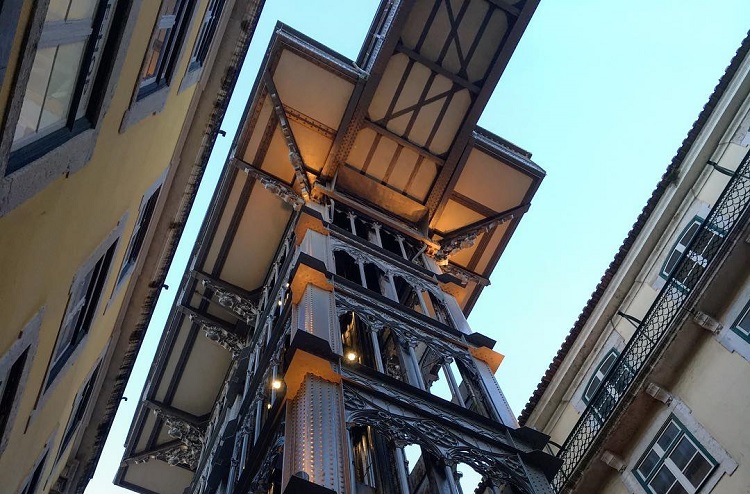

Santa Justa Lift is a Lisbon skyline with a unique view.
One of Lisbons greatest attractions is the Santa Justa Lift, a must see if you are visiting the capital. It is also very crowded, the queues can ... -


Portuguese trail is voted the best in Europe Algarve
The trail runs along the golden cliffs along the coast for 5.7 kilometers from Vale Centeanes Beach to Marinha Beach. The Portuguese route was ... -
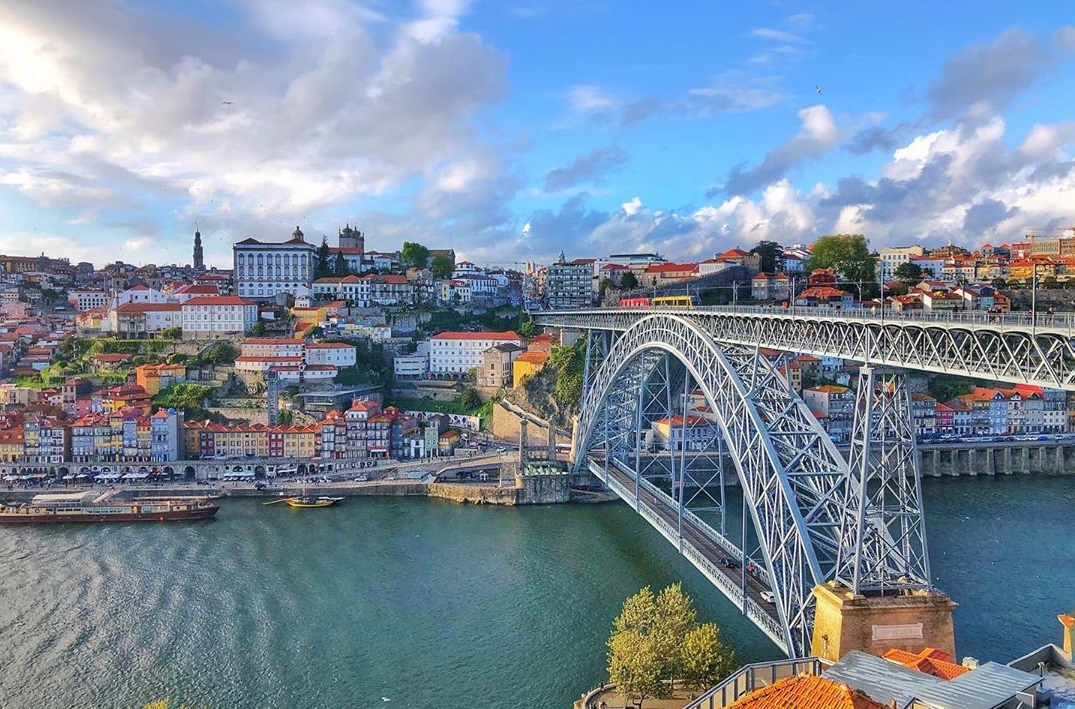

This is the best month to visit Portugal find out Why
The month of June brings the sun, takes away the rain and puts a smile on the faces of the Portuguese and tourists. It is the month of ... -
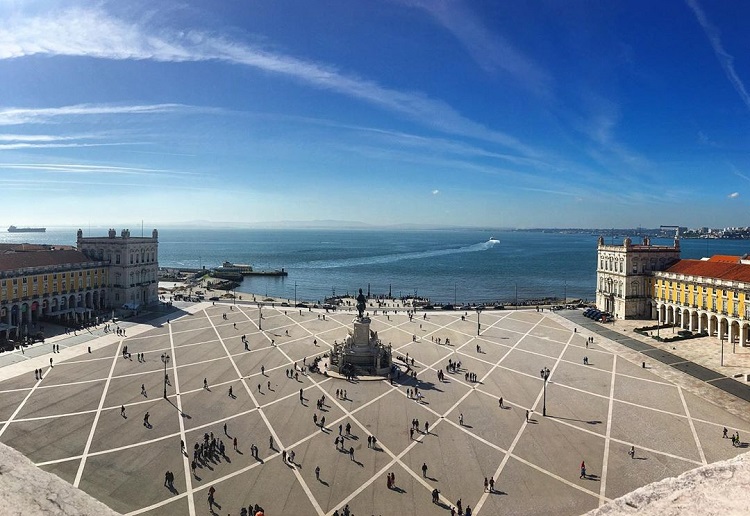

39 things to do at least once in your life in Lisbon Portugal
1- Riding the tram 28 2- Eat snails in the Julius of Snails 3- Have an ice cream in Venetian 4- Spend the afternoon facing the Tagus 5- Se... -
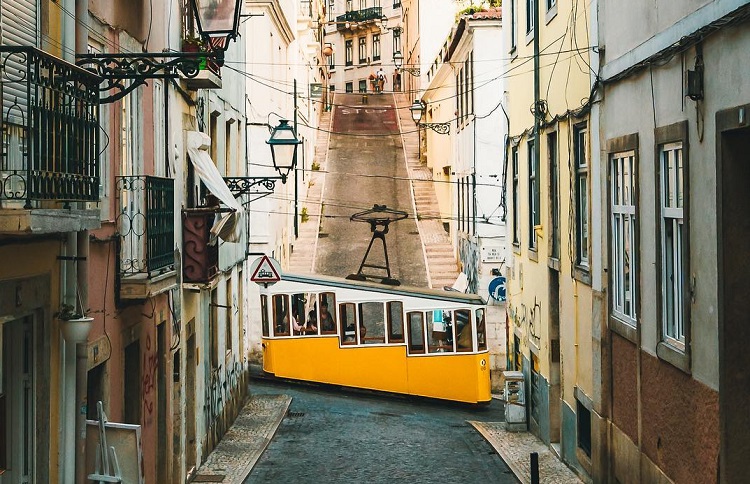

Did you know that Lisbon is not the official capital of Portugal?
Although it may seem strange… its true! Unlike the vast majority of world capitals, there is not a single official document stating that L... -
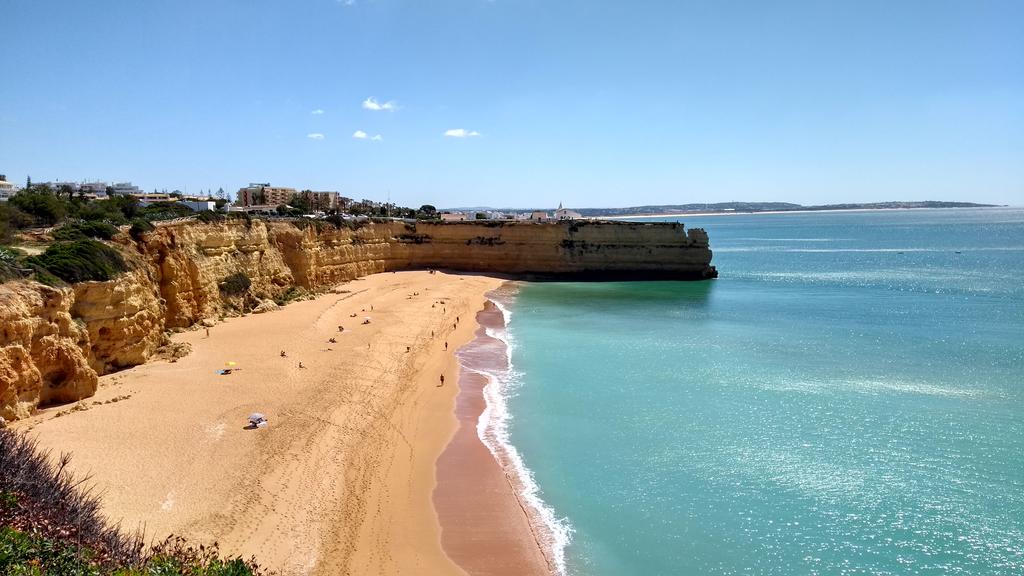

7 fantastic beaches Algarve the perfect trip Portugal
Still wondering where to go for your sun, sea and sand correction this summer? With its spectacular beaches, rugged cliffs and crystal clear wate... -
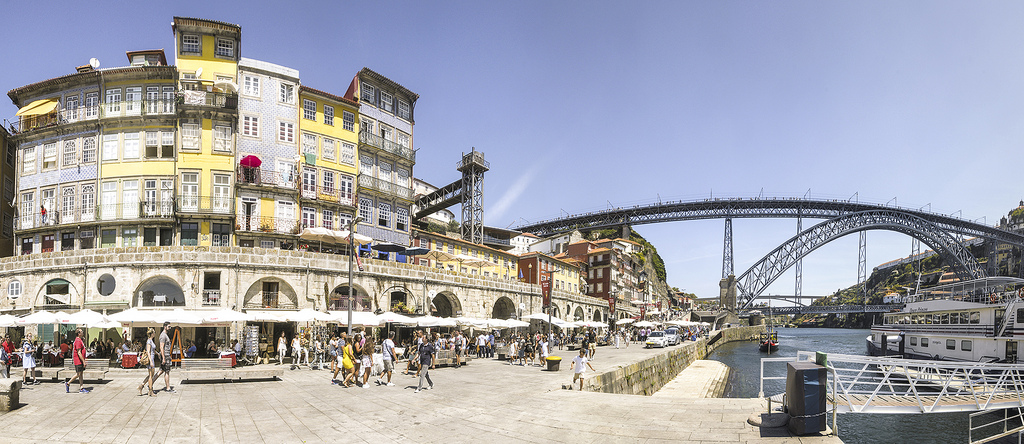

Unforgettable attraction visits Cais da Ribeira in Porto Portugal
The most typical area of the city of Porto is the Ribera pier, located in the lower zone, on the bank of the Douro river. It is a kind of promena... -


50 things to do at least once in your life in Lisbon Portugal
1- Riding the tram 28 2- Eat snails 3- Have an ice cream in Venetian 4- Spend the afternoon facing the Tagus 5- See the suns...
